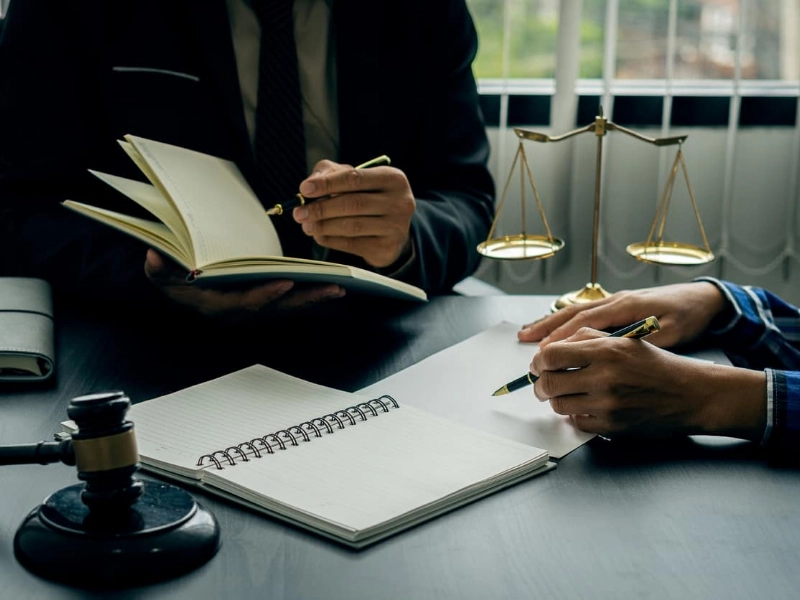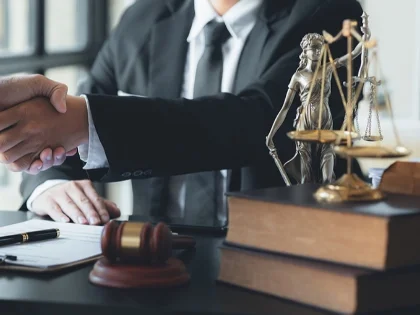Common Legal Mistakes And How To Avoid Them With A Lawyer's Help
Creating legal documents can be extremely difficult, and even lawyers sometimes make mistakes when creating them. For instance, a pronoun that is unclear in meaning may allude to more than one antecedent, leading to confusion. Even though mistakes are inevitable, some blunders might have detrimental effects. The good news is that, with the assistance of a knowledgeable lawyer, many of these mistakes may be avoided.
1. Ignoring the Law and Not Taking the Time to Learn It

2. Failure to establish a written agreement.
 Not having a formal agreement in place is one of the worst blunders that companies can make. In addition to helping to avoid miscommunications and disputes, having the terms clearly stated in writing facilitates the enforcement of the agreement between the parties in the event of a disagreement.
People's memories can change over time, and verbal contracts can sometimes pit one person's account of events against another, making them difficult to prove in court. This may result in a considerable deal of time and money being wasted trying to decide who is correct or incorrect in a legal dispute.
Contracts that are properly drafted, comprehensible, and enforceable can be improved with the assistance of a lawyer. This is especially crucial for contracts that legally have to be in writing, including those involving the purchase or sale of real estate or loans over a specific sum. Oral agreements can be used for a variety of other purposes, and a lawyer can help determine whether or not they are enforceable.
Not having a formal agreement in place is one of the worst blunders that companies can make. In addition to helping to avoid miscommunications and disputes, having the terms clearly stated in writing facilitates the enforcement of the agreement between the parties in the event of a disagreement.
People's memories can change over time, and verbal contracts can sometimes pit one person's account of events against another, making them difficult to prove in court. This may result in a considerable deal of time and money being wasted trying to decide who is correct or incorrect in a legal dispute.
Contracts that are properly drafted, comprehensible, and enforceable can be improved with the assistance of a lawyer. This is especially crucial for contracts that legally have to be in writing, including those involving the purchase or sale of real estate or loans over a specific sum. Oral agreements can be used for a variety of other purposes, and a lawyer can help determine whether or not they are enforceable.
3. You're not receiving assistance from a skilled attorney
 Errors happen to everyone, especially those in the legal profession. That does not imply, however, that they cannot be avoided. In actuality, having an excellent attorney on your side can help you avoid a lot of these errors.
It is imperative that both individuals and corporations have a competent attorney. In the long run, they can save you time, money, and stress by helping you navigate the complicated legal system and lowering the likelihood of costly errors.
For entrepreneurs, a skilled attorney can guarantee that their organisation is adhering to all relevant rules and laws. They can also assist you in negotiating and drafting agreements with suppliers, workers, and other parties. They can also assist you in settling conflicts and averting future costly legal proceedings. Additionally, they help shield your company from costly malpractice lawsuits.
Errors happen to everyone, especially those in the legal profession. That does not imply, however, that they cannot be avoided. In actuality, having an excellent attorney on your side can help you avoid a lot of these errors.
It is imperative that both individuals and corporations have a competent attorney. In the long run, they can save you time, money, and stress by helping you navigate the complicated legal system and lowering the likelihood of costly errors.
For entrepreneurs, a skilled attorney can guarantee that their organisation is adhering to all relevant rules and laws. They can also assist you in negotiating and drafting agreements with suppliers, workers, and other parties. They can also assist you in settling conflicts and averting future costly legal proceedings. Additionally, they help shield your company from costly malpractice lawsuits.
4. Do not have an effective attorney on your side
 People and companies frequently put off getting legal counsel because they think they can manage things on their own. However, doing so can result in costly errors and miscommunications that could have been avoided with the help of a knowledgeable attorney.
Even the most careful attorneys occasionally make mistakes because they are fallible human beings. Nonetheless, certain mistakes carry a higher risk of legal malpractice than others. If a lawyer breaking the Rules of Professional Conduct would be if they neglected to conduct sufficient research for a case or failed to notice a significant conflict of interest.
Individuals and companies should select a lawyer who specializes in the area they need help with and has a proven track record of success in resolving matters similar to theirs in order to avoid making these typical legal blunders. It's also critical to maintain regular contact with your lawyer and inform them of any changes to your personal or professional situation that may affect the scope of their service.
People and companies frequently put off getting legal counsel because they think they can manage things on their own. However, doing so can result in costly errors and miscommunications that could have been avoided with the help of a knowledgeable attorney.
Even the most careful attorneys occasionally make mistakes because they are fallible human beings. Nonetheless, certain mistakes carry a higher risk of legal malpractice than others. If a lawyer breaking the Rules of Professional Conduct would be if they neglected to conduct sufficient research for a case or failed to notice a significant conflict of interest.
Individuals and companies should select a lawyer who specializes in the area they need help with and has a proven track record of success in resolving matters similar to theirs in order to avoid making these typical legal blunders. It's also critical to maintain regular contact with your lawyer and inform them of any changes to your personal or professional situation that may affect the scope of their service.







